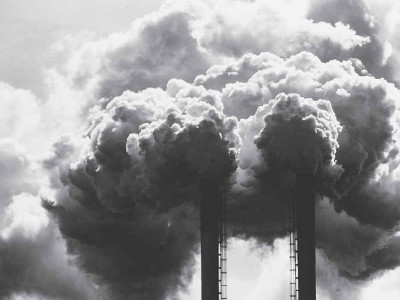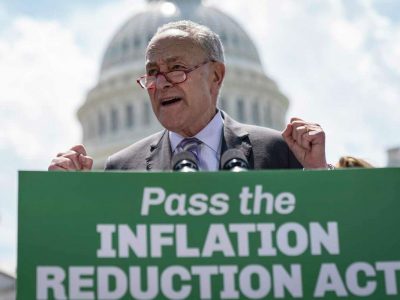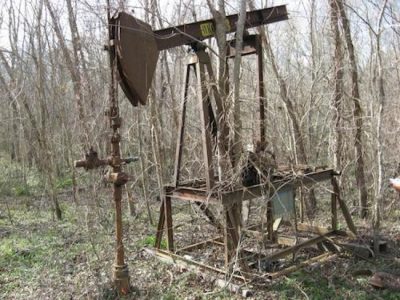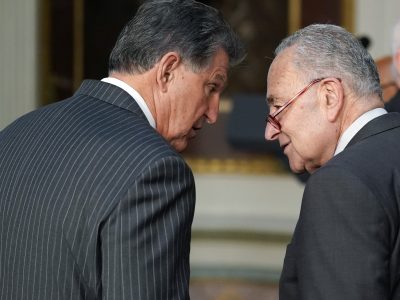A Design Flaw in the Clean Air Act
Why have technology-based standards if you have air quality standards?
The Clean Air Act has two kinds of standards. It sounds like having two kinds of standards should improve air quality more than a single standard. But in reality, one type of standard can result in canceling out the benefits of the other type. If you understand the statute, this is actually pretty obvious once you stop to think about. I have to admit, however, that I hadn’t stopped to think about it until today, even though I’ve taught this stuff dozens of time. W...
CONTINUE READINGDoes the New Climate Law Expand Regulatory Authority?
It’s not the game changer some people think, but IRA could help in several ways.
There’s been a lot of recent talk about whether the Inflation Reduction Act (IRA) indirectly overrides West Virginia v. EPA. The answer to that is probably "no." However, some IRA provisions will help lawyers defend certain regulatory actions. IRA may also have an important framing effect when courts are considering the reasonableness of agency actions. Finally, it could help California’s claim of authority to phase out gas and diesel. EPA authority. The argu...
CONTINUE READINGThe Inflation Reduction Act and California Offshore Wind
There May Be Workarounds for Delays in Offshore Wind Created by IRA Section 50265
Various measures in the Inflation Reduction Act (IRA), signed into law on August 16, 2022, create new momentum for offshore wind in California. However, as with all things in life, it’s never that simple. In this case, the IRA ties offshore wind (OSW) leases to offshore oil and gas auctions and prevents OSW leases from being issued until millions of acres in offshore oil and gas leases have been offered through at least one sale. However, because the IRA also require...
CONTINUE READINGNow You’re in Law School. What Should You Take?
There’s more than one path to environmentally meaningful work.
On Monday, I explained why this is an especially urgent time for new law students to be thinking about the climate crisis and how they can contribute as lawyers. The next question is how to prepare for that work. Here's what I would say to a student in that position: The first thing to realize is that you can make a contribution without being an “environmental lawyer” in the conventional sense. If you do corporate work, you can focus on ESG (Environment, Soc...
CONTINUE READINGA Three-Prong Attack on Carbon Emissions
A trio of new laws will power the energy transition.
Passage of IRA was clearly a big deal, with nearly $380 billion devoted to climate and other environmental issues. But IRA is only one of the three big climate bills passed in the ten months. The three represent a concerted effort to accelerate the energy transition. The earliest was the Infrastructure Act last November. In early August, Congress followed up with the CHIPS law, and of course the grand finale was the IRA a few weeks later. The Infrastructure A...
CONTINUE READINGDear 1L . . .
You couldn't have picked a more critical time to come to law school, for the country, the planet, and our future.
Dear 1L: You’ve gotten to law school at a crucial time for the future of the planet. The good news is that you’re arriving at a pivotal point when your work as a lawyer can make a big difference. The bad news is that we have a dwindling amount of time to get the situation under control. You’ll need to plunge right into the issues as a lawyer if you’re going to contribute. At the end of environmental law courses, I used to tell students about the role t...
CONTINUE READINGMaking Fossil Fuels Pay for Their Damage
A carbon tax doesn’t seem to be in the cards. Maybe a clean-up tax would fare better.
Production and combustion of fossil fuels imposes enormous costs on society, which the industry doesn’t pay for. I want to talk about some options for using the tax system to change that. One option, a tax on carbon dioxide emissions, gets the most attention but seems politically impossible. The closest we've ever come to a carbon tax is a limited fee on methane emissions under the new IRA law. A more promising alternative might be a clean-up tax on the fossil fu...
CONTINUE READINGNew Frameworks to Address Vehicle Travel Impacts
CLEE report proposes banking and exchange strategies for CEQA mitigation
When Caltrans and other state and local agencies build or approve projects that increase car traffic, state law requires them to mitigate those impacts. A new report from CLEE proposes development of state and regional programs that would allow these agencies to mitigate by investing in offsite bike lanes, bus-only lanes, transit passes, and other measures to effectively and efficiently reduce a corresponding amount of vehicle miles traveled (VMT). Under the Californi...
CONTINUE READINGThe Side Deal
How would the Manchin-Schumer deal on permitting impact the environment?
To get Manchin’s vote for the $379 billion in environmental spending in the IRA bill, Schumer and other congressional leaders had to agree to support Manchin's efforts to speed up the permit system. At this point, all we have is a one-page list of permitting changes that would form the basis of a new bill. The knee-jerk reaction is that these changes, like Trump’s efforts to speed approval of fossil fuel projects, are bad for the environment. But the issue is mor...
CONTINUE READINGIRA’s Impact
The new law is a Big Deal. Or more precisely, a REALLY Big Deal.
IRA, the Inflation Reduction Act, is clearly the biggest climate legislation ever passed in the United States. The law will provide $379 billion in subsidies to clean energy in the form of direct payments and tax credits. Subsidies aren’t the ideal way to cut emissions, because it’s impossible to target them to the precise behavioral changes you seek. But subsidies do work, and big subsidies have big effects. There are now several studies estimating the impact...
CONTINUE READING









